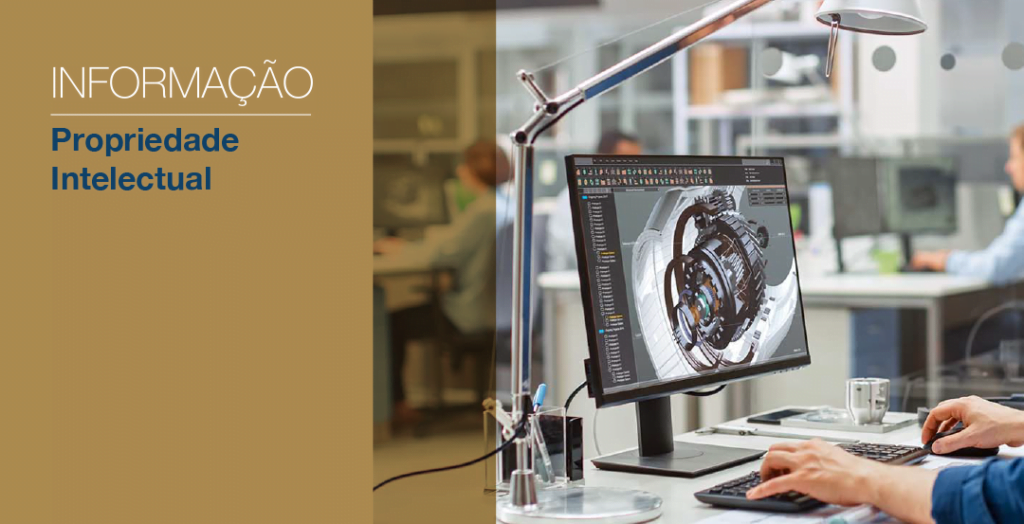The Tax Reform, provided for in the Federal Constitution (art. 156-A), in Complementary Bill No. 108/2024, and in Complementary Law No. 214/2025, had as its main goal to transform the consumption taxation system in Brazil. Five complex taxes were eliminated — PIS, Cofins, IPI, ICMS, and ISS — which will be replaced by […]
CPDMA BLOG
Number of labor lawsuits claiming intellectual property rights increases

According to data collected from the Superior Labor Court, the number of labor lawsuits claiming employees' intellectual property rights has almost doubled since 2018. In that year, 161 lawsuits were filed. Since then, the average has remained around 300 cases per year.
The actions are based on Article 91 caput This article is based on the second paragraph of the Industrial Property Law - LPI - (9.279/96) which establishes that the ownership of the invention will be common and in equal parts when it results in the contribution of the employee and resources, means, materials and facilities of the employer, assuring the employee fair remuneration.
This ends up happening because companies, for the most part, use standard employment contracts, which do not provide for specific rules regarding the creation of products and intellectual property arising from the position held by the employee, as well as intellectual production occurring within the company, but outside the exercise of the functions for which the employee was hired, such as when the employee gives a technical solution to an existing problem and this resource is implemented in the company.
One of the ways to minimize the entry of this type of demand is to use the proviso provided for in the final part of article 91 of the LPI - the express contrary provision in the contract, that is, companies should review their employment contracts so that they provide for express rules to the effect that any and all intellectual creations of employees, whether or not in the course of their employment, will be the exclusive property of the company. It is also important to include a confidentiality and non-competition clause, preventing the employee from disclosing or producing the object of the creation during the course of the employment contract.
Recent posts
STJ upholds acquisition for any price in the 3rd round of the bankruptcy auction and rejects claims of an unfairly low price
A Terceira Turma do Superior Tribunal de Justiça (STJ) proferiu uma decisão de grande impacto no Direito Empresarial e Processual, validando a arrematação de um imóvel de massa falida por apenas 2% de sua avaliação. Esta decisão é fundamental e reforça a prioridade da Lei de Falências (Lei nº 11.101/2005, atualizada pela Lei nº 14.112/2020) […]
Em recente julgamento (REsp 2.180.611-DF), a Terceira Turma do STJ estabeleceu um entendimento crucial que visa proteger o patrimônio do coproprietário ou cônjuge, em caso de penhora e arrematação de bens indivisíveis, que não tem responsabilidade pela dívida (o alheio à execução). O que mudou e o que você precisa saber? A lei (Código de Processo Civil - […]
O Superior Tribunal de Justiça (STJ) firmou um importante entendimento no Tema Repetitivo 1368 sobre a taxa de juros de mora aplicável a dívidas de natureza civil no Brasil, antes da vigência da Lei n.º 14.905/2024. --- A tese firmada: o STJ estabeleceu que o artigo 406 do Código Civil de 2002 (em sua redação anterior à Lei […]
Rural sale-and-leaseback: liquidity for companies in crisis and protected returns for investors
No agronegócio brasileiro, a busca por capital rápido em meio à escalada dos juros fez crescer uma estrutura já conhecida no mercado imobiliário urbano: o sale-and-leaseback. A lógica é direta: o produtor vende a área rural a um investidor, recebe o dinheiro à vista e, no mesmo ato, assina um contrato de arrendamento a longo prazo […]
Em 3 de julho de 2025, a Comissão de Valores Mobiliários (CVM) publicou as Resoluções CVM 231 e 232, instituindo o regime FÁCIL (Facilitação do Acesso ao Capital e Incentivos às Listagens). A iniciativa visa simplificar o ingresso de Companhias de Menor Porte (CMP) no mercado de capitais brasileiro, promovendo transparência regulatória e estabilidade jurídica, […]


